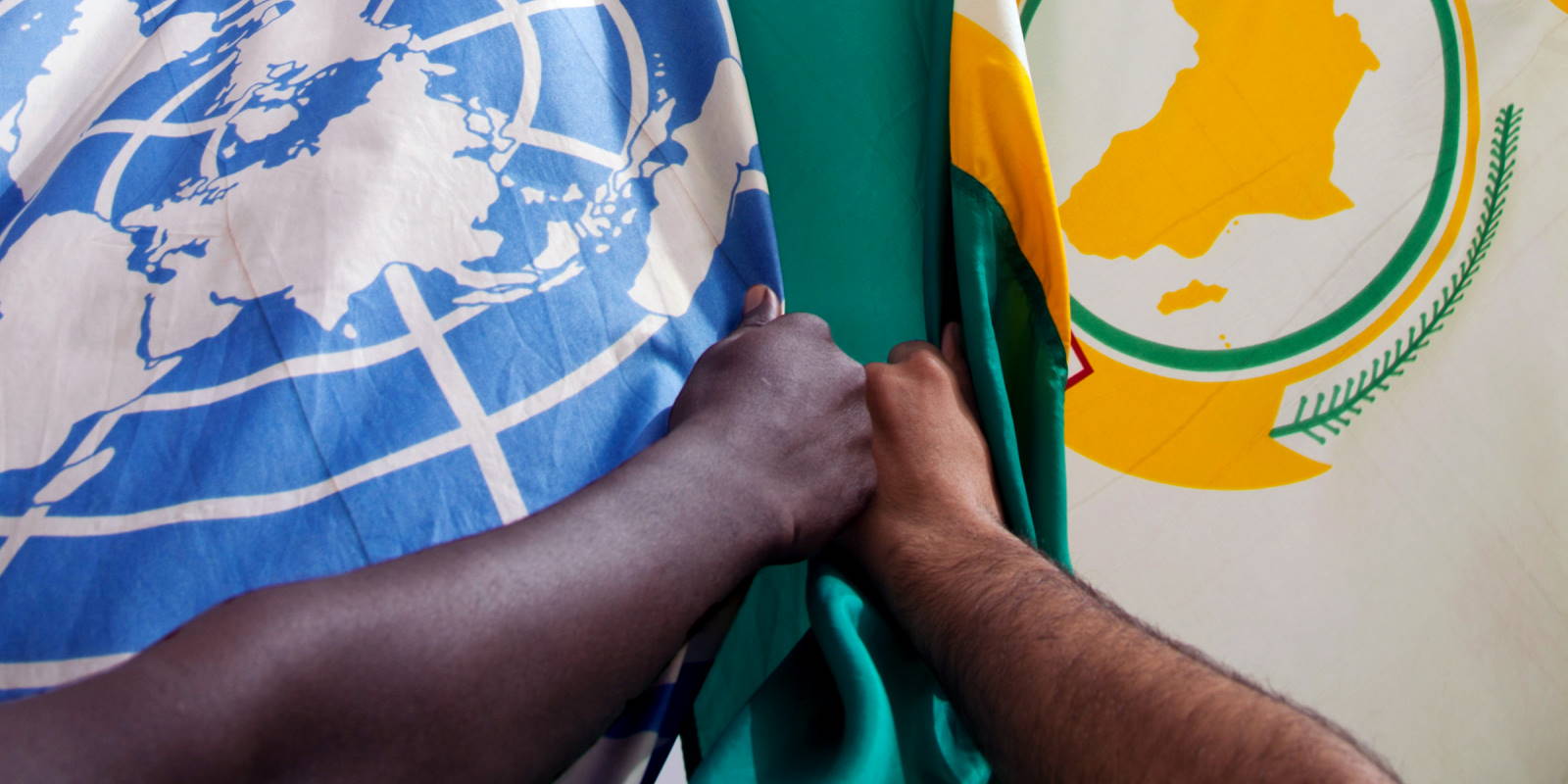Between March and May 2020, ACCORD consulted a broad range of stakeholders in Africa on their experiences to date with the PBA, culminating in a virtual consultation that took place on 10 June 2020 in partnership with the South African Department of International Relations and Cooperation (DIRCO) and the African Union (AU) Commission. The theme of this African consultation was ‘Sustaining Peace in Africa: Local Capacities for Peace’, which reflects a particular interest in the impact of peacebuilding efforts at the national and local levels.
COVID-19 has disrupted peacebuilding, but it has also provided an opportunity to strengthen societal resilience through a renewed focus on regional, national and local capacities for peace @CedricdeConing & Nontobeko Gcabashe #C19ConflictMonitor
Tweet
Inputs received during the course of this consultation showed that despite policy commitments to local ownership and investments in local and national capacities for peace, the funding, coordination, planning and the state-centric decision-making structures still favour UN agencies, international non-governmental organisations (NGOs) and governmental authorities. It further highlighted that local peacebuilders are not sufficiently involved in identifying needs, framing issues or designing programmes and results frameworks.
The consultations also highlighted the AU and UN’s exemplary work to date to operationalise their strategic partnership at the political and Commission Secretariat levels. This partnership still requires more meaningful collaboration at the national and local levels in those countries on the AU’s and UN’s peacebuilding agenda. The consultations indicated that the AU, UN, regional economic communities (RECs) and other partners are still operating mostly in silos alongside each other, instead of in a more integrated and synergistic manner. COVID-19, climate change and other such system-wide social-ecological stressors should motivate these partners to work more closely together at the country level, including with national and local peacebuilders, to maximise their collective capabilities and resources.
Women continue to be disproportionately affected by structural and material barriers, limiting their participation in peacebuilding activities, as highlighted again by the COVID-19 experience. For the UN PBA to strengthen its relevance to women, it has to move away from state-centric, blueprint-focused and technically oriented approaches. A field- and people-oriented approach must be rooted in the local context, strengthening local and national capacities for peace. It is time to shift from demonstrating inclusion to assessing the quality of the involvement of women, measured against the agency they have to influence the purpose and content of the peacebuilding programmes from which they are meant to benefit.
Young people are affected by conflict and the COVID-19 pandemic, yet they remain excluded from peace and decision-making processes. Generally, programmes are designed by practitioners or experts who are far removed from the lived realities of young people. Many youth-led organisations and networks have a nuanced understanding of their local context and know how to navigate the environments in which they operate. However, they face various barriers in accessing funding, as few donors fund youth-led initiatives directly.
Since the previous UN peacebuilding review in 2015, the impact of climate change on people’s lives has become noticeable. Investing in local and national capacities for peace is important, as local and national resilience, adaptive capacity, social capital and social cohesion are critical for communities and societies to withstand shocks and climate-related stress. Thus, peacebuilding has to develop better ways in which international, regional, national and local peacebuilders can support and strengthen local and national capacities for peace, taking into account climate-related security and development risks.
COVID-19 has significantly disrupted existing peacebuilding initiatives. Even before COVID-19, there was concern about the degree to which the international, regional and national systems valued and mobilised funding towards sustaining peace. Now, with an emerging global recession in the wake of COVID-19, the challenge for peacebuilding financing is even more accentuated. African countries affected by conflict are particularly vulnerable, especially as responses to the pandemic and their consequences exacerbate long-standing fault lines. It has also led many states to instinctively turn inward at the expense of strengthening international cooperation.
COVID-19 and the measures introduced to contain it are exacerbating conflict dynamics and existing patterns of inequality, interrupting peace processes and increasing the risks of violence in communities. Many commentators expected that Africa, with its high levels of underdevelopment and weak public health systems, would be particularly badly affected by COVID-19, and that this could even lead to a catastrophic collapse of social and political stability. So far, however, the emerging pattern is one of resilience rather than collapse, chaos and conflict.
Now that COVID-19 measures have included border closures and disrupted travel, national and local peacebuilders are at the forefront in responding to conflicts and building peace. Therefore, the restrictions brought about by the pandemic have highlighted that while support and partnerships from external (international) actors are crucial, strengthening regional, national and local capacities for peace should be a priority, so that the remarkable resilience shown to date by African communities, states, RECs and the AU can be sustained and further strengthened.
The recommendations from the African consultation process that were submitted to the UN Secretary-General call for the empowerment of national and local actors; strengthening the implementation of the women, peace and security (WPS) agenda; accelerating the implementation of the youth, peace and security agenda; and enhancing partnerships with the AU and sub-regional organisations. COVID-19 has disrupted the ways in which the UN, the AU and others have been undertaking peacebuilding, but it has also provided an opportunity to strengthen societal resilience through a renewed focus on regional, national and local capacities for peace.
Dr Cedric de Coning is a senior advisor for ACCORD, and Nontobeko Gcabashe is a programme officer on peacebuilding and local and national capacities for peace at ACCORD.

